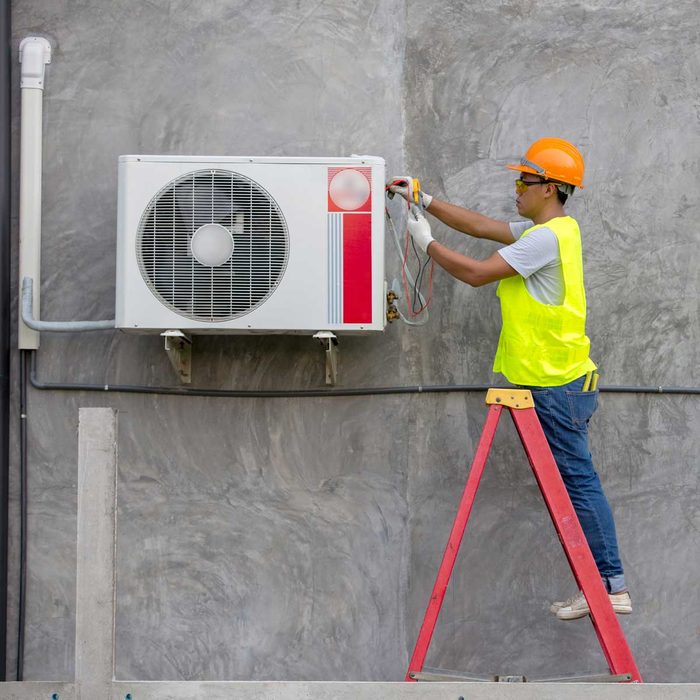How to Become an HVAC Technician

In an era of energy conservation and extremely air-tight construction practices, the demand for HVAC tradespeople won't evaporate any time soon.
The HVAC trade offers a route to stable employment and opportunities that can grow in many directions. With projected growth that outpaces other trades, becoming an HVAC technician can lead to a rewarding career.
On This Page
What Is HVAC?
HVAC, shorthand for heating, ventilation and air conditioning, also includes a fourth area: refrigeration. According to Eric Weiss, technical trainer for Trane Residential, based in Dallas-Ft. Worth, Tex., “HVAC encompasses quite a few of the technical trades — maybe not as in-depth as specialized [tradespeople], but the cool feature about the HVAC industry, since it is so vast, there’s no redundancy in what you do from one day to another.”
He added that it’s important to develop some skill in electrical work; pipe fitting, to run gas lines to equipment; power systems and air-flow systems. A basic understanding of chemistry and physics also comes in handy when working with refrigeration units.
The trade does lean toward heavier physical requirements. Technicians must carry compressors weighing 50 to 100 lbs., work on their knees and above their head, and deal with temperature extremes found outdoors and in attics during the heat of summer and frigid winters.
“There will also be days where the weather is beautiful and everybody has their doors and windows open and don’t need heating and air conditioning,” he says. You also deal with on-call situations over weekends and holidays. “There have been weeks where I clocked over 90 hours,” he says.
How to Become an HVAC Technician
Weiss says that becoming an HVAC technician requires little preparation. Although some math, chemistry and physics can certainly help, advanced knowledge in these areas is not a requirement. You should have a high school diploma or GED (occasionally not even this is required), a driver’s license, and the desire to show up on time, work an honest day and learn.
Paths into the HVAC trade vary from applying for an entry-level job with a company and learning it all on the job, to entering a trade school program that teaches you in-depth theory and business skills with some hands-on training. Another option is a multi-year apprenticeship, paid for by a company-association or a company-union partnership, where you earn a wage while working and attending a day of class every other week or so.
Requirements to work in the trade vary from state to state. Some states require every worker to serve an apprenticeship, some specify a certain number of supervised hours on the job, and others leave it all to the employer as long as the company owner holds a trade certification. Local HVAC companies should be able to point you in the right direction if you express interest in the trade. Online resources, like HVACschool.org and HVACed.com can also help you find the correct path in your state.
HVAC Wage Potential
Quoting one of his colleagues, Weiss says, “This is the only industry where you can walk in with no education and no real [developed] skills and start off learning — then start your own business and make $1 million a year.”
Weiss says wages vary across the country based on cost-of-living. The U.S. Department of Labor Statistics lists the median wage at $24.32 per hour, or $50,590 annually. Entry-level workers with no experience tend to make $10 to $15 an hour, while trade school advances that starting wage to $15 to $20 an hour. Apprentices start at a prescribed percentage of the standard qualified-technician wage and progress up to the full wage upon completion of the program and successful certification.
Career Development
People working in all facets of the HVAC trade started as technicians, says Weiss. After time in the field, technicians may go on to sales or management positions. Some go back to school for engineering and do product or system design. Others choose to start their own companies. The field offers a wide enough scope that you have freedom to choose an area that interests you.
According to Weiss, he hears two main reasons why people love working in the HVAC trade:
- The incredible amount of freedom. You’re not stuck in an office from 8 AM to 5 PM staring at a computer or working on a line.
- The daily sense of accomplishment. You go into someone’s home to diagnose and fix a problem. HVAC technicians say they get incredible gratification from that.


